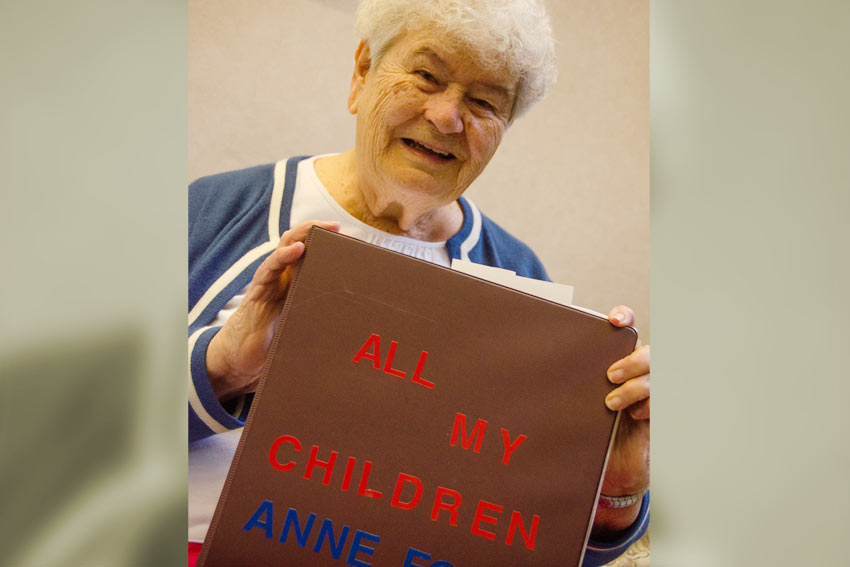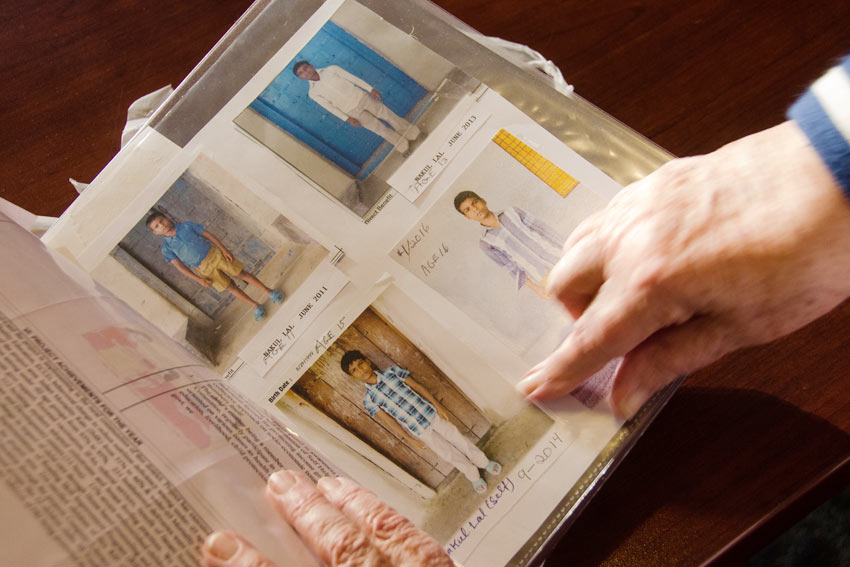Site will be
unavailable for maintenance from June. 4, 11:30 p.m., to June 5, 12:30 a.m. ET. Thank you for your
patience!
Curious what it’s like to sponsor a child? Meet Anne Humes.
Posted on 08/19/2019

Since 1957, Anne Humes has collected all of her sponsored children’s photos and correspondence in a binder she has titled “All My Children.”
Curious what it’s like to sponsor a child? Meet Anne Humes.
When she first signed up to sponsor a child through ChildFund, the year was 1957. Sixty years, hundreds of letters and two international trips later, today she has sponsored a total of 33 children in 10 countries.
Read on for four possible side effects of child sponsorship, according to one of the experts.
1. Sponsoring a child will reveal what’s important to you – and why.
Mrs. Humes says that her decision to become a sponsor was “not at all surprising”, given her background as a social worker in foster care. Through her daily interactions with little ones facing challenging life circumstances, she developed a deep concern for children’s welfare not just in the U.S., but throughout the world. What motivates your desire to make the world a better place? It will come up again and again as you continue in your sponsorship journey.
2. Child sponsorship will give you global perspective.
Mrs. Humes’ first sponsored child, Bernard, lived in Austria, where ChildFund (then Christian Children’s Fund) helped operate innovative orphanages called “children’s villages” after World War II. In 1960, Mrs. Humes had the opportunity to travel there to visit him.
“There were about seven or eight houses, and each had children of different ages and genders, with house parents in each. So it was a wonderful, almost natural kind of setting,” she recalls. “We went out rowing on a lake nearby, and on Sunday, we went to the village church together. I sponsored Bernard until he finished his schooling and was apprenticed to a TV/radio station.
“That trip was eye-opening. I was so curious about the ways a different country reacted to the needs of children who had been through war or abuse.”

Sharing a recent page in her binder, Mrs. Humes marvels at how her current sponsored child, Nakul, is growing into a young man.
3. Sponsoring a child will help you forge a genuine one-to-one connection.
Although you might gain lots of perspective about complex global issues, writing to your sponsored child and connecting with them is as simple as genuinely wanting to know who they are. Mrs. Humes says that curiosity has been her most valuable tool in deepening her relationship with her sponsored children over the years. She engages with them on universal topics like their favorite school subjects, sports and animals, as well as their families and dreams for the future.
“The fact that somebody wants to know how their health is, asks about their family members, shows curiosity about the place in which they are living – in other words, a supportive relationship on a continuous basis – is so important to a child’s growth,” Mrs. Humes says.
4. Warning: Child sponsorship might get you hooked on doing good.
When she’s not writing letters to the 17-year-old boy she currently sponsors in India, Mrs. Humes volunteers with a Head Start program for children in her community whose families have recently immigrated to the U.S. “They’re learning English faster than I’m learning Spanish,” she laughs. “But we have a lot of fun.
“I’m glad to be able to help the little children. They’re a wonder. They keep me awake and very much alive.”
Loading...


